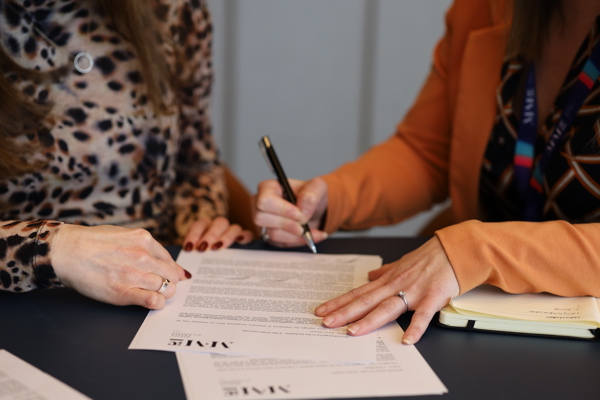While this was clearly a meaningful and important occasion for M. Cardiles, the concept of marriage to a person who has died instinctively strikes one as rather unusual. Indeed, a quick Google search suggests that France is one of only a very small number of countries which allow this practice.
The intention seems to be to enable someone to complete the process of marriage where the deceased had clearly intended for this to take place but died before it could be finalised. Assuming my schoolgirl French is correct, Article 171 of the French Civil Code requires there to be "official formalities marking unequivocal consent" before the death (such as posting the banns). The posthumous marriage must also be authorised by the President of France him/herself - so it will happen only in exceptional circumstances, as was clearly the case here.
Within our team of Scots family lawyers, the immediate reaction (aside from sympathy for M. Cardiles) was "…but what about consent"? At the risk of stating the obvious, someone who has died is no longer capable of giving consent to marriage. However, consent is a fundamental element of marriage in Scotland. Both parties must consent "at the time of the marriage ceremony" for a marriage to be valid. If one spouse does not give valid consent (perhaps because they lack the capacity to do so, or agreed only under duress) then the marriage can be declared void.
I'm sure that M. Cardiles and other posthumous spouses have acted entirely in good faith and for very understandable reasons. However, from a legal point of view, presuming consent on behalf of the deceased runs somewhat counter to Scots legal tradition, given that any living person could withdraw consent right up to the point of finalising the marriage. In fact, we probably all know of at least one engaged couple who, for one reason or another, have not gone through with the ceremony itself.
Putting that aside, though, what are the legal consequences of posthumous marriage in France? It turns out that they are fairly limited. Article 171 of the Civil Code goes on to state that a posthumous marriage cannot enable the surviving spouse to inherit, nor does it result in the creation of matrimonial property. In other words, it doesn't give the surviving spouse a basis for a financial claim. The purpose therefore seems to be primarily social and emotional rather than legal or financial, arising from the particular history of the development of French law.
Even if we had the equivalent in Scotland, therefore, it would not address the most common difficulty - the situation when one half of an unmarried couple dies without making a Will. Many people assume that their relationship automatically acquires legal status over time (that is, "common-law marriage") and so their partner will be looked after if they die. However, there is no such thing as common-law marriage in Scotland. In very limited circumstances, a court can make an order declaring a relationship to be a marriage "by cohabitation and repute", but this will not apply in the vast majority of cases, and is in the process of being phased out altogether.
Where the deceased left a Will which provides for the unmarried partner, all will be well - although many people overlook their pension benefit and death in service nominations, so it's worth checking those at the same time as you update your Will.
However, if there is no Will, the rules of inheritance exclude unmarried partners in favour of blood relatives. This can cause real problems, especially when relationships with the "in-laws" are tense, or become distorted in reaction to grief. Furthermore, if the deceased had been married before and just not got round to divorcing - which is not uncommon - the estranged spouse would have more right to the estate than the surviving partner. At the most difficult time in your life, you don't want to have to move out of your house because your name was not on the tenancy, or be forced to hand over possessions which have great emotional significance.
In recognition of these problems, the law in Scotland changed in 2006 to allow bereaved cohabitees to make a limited financial claim on the estate of the deceased partner. However, you need to go to court about this within just six months of the date of death - which is a lot to ask in the aftermath of such tremendous loss. Most people would prefer not to litigate about such upsetting matters. Nevertheless, if you do find yourself in this difficult situation, it's essential to get advice as early as possible so that you don't lose the right to make a claim.
Ultimately, while nobody wants to contemplate the worst-case scenario, if you want your partner to be protected in the event of your death, a Will remains the most reliable solution - if you don't fancy making the trip to the altar.


